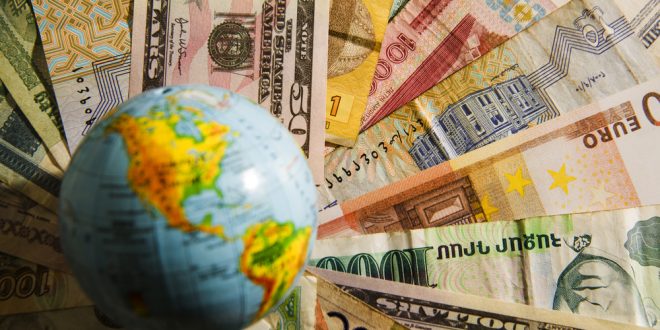Last week witnessed significant developments, encompassing economic data, monetary policy speeches, and various market drivers, ultimately leading to a surge in risk assets and a concurrent strengthening of the US dollar as the trading week concluded on the tenth of November.
The initial part of the week remained relatively calm and positive, spurred by the release of employment data from the preceding week. This data highlighted a decline in job and wage growth, generating a sense of relief regarding future interest rate paths. There was a growing expectation that the Federal Reserve might halt its interest rate hikes in the coming period.
Statements emerged from the Federal Reserve, conveyed by several members of the Federal Open Market Committee, indicating a leaning towards discontinuing quantitative tightening. This shift in stance was prompted by a moderation in the rise of inflation and a perceived tightening of financial conditions in the country. The members expressed concerns that the continued increase in interest rates could potentially harm the economy under the prevailing circumstances.
The Federal Reserve opted to keep its benchmark rate unchanged, maintaining a 22-year high at the conclusion of its recent meeting. However, Fed Chairman Jerome Powell, in his address before the International Monetary Fund, indicated a commitment to combat inflation, suggesting that further tightening might be necessary to bring inflation down to the targeted 2%.
Powell’s comments were perceived as hawkish, marking a departure from the dovish tone of the previous week’s policy meeting. Whether hawkish or dovish, bullish or bearish, many investors are growing frustrated with the Fed’s impact on daily market movements.
The idea of central monetary planning that operates discreetly without exerting undue influence on markets is seen by some as an incomplete solution. There will always be pressures for central bankers to intervene during financial crises, and expecting policymakers to abstain from using their power to create currency is unrealistic.
Even if the Fed were to operate strictly based on a fixed set of rules, eliminating subjectivity and guesswork from monetary decisions, it would still distort markets by artificially setting interest rates and inflation targets according to some arbitrary formula. The current 2% inflation target, which the Fed is struggling to achieve, is criticized as a phony substitute for stable prices.
Under a gold standard, government spending capacity would be constrained by the supply of bullion in reserves and the willingness of creditors to accept promises redeemable in gold. A monetary system tied to hard assets like gold and silver could allow for true price discovery in interest rates and other markets, reducing reliance on interpreting central bankers’ statements.
For now, markets continue to react to the Fed’s every move, non-move, and signal. While futures markets suggest an expectation of a rate cut in 2024, the uncertainty surrounding rate changes has left metals markets struggling to initiate a year-end rally. Gold prices briefly breached $2,000 but faced selling pressure, preventing a sustained rally.
Oil
Oil prices rose by about two percent on Friday, with Iraq confirming its commitment to the production levels set by the OPEC+ alliance, ahead of a meeting that the alliance will hold in two weeks.
But prices recorded a weekly decline of four percent.
Brent crude futures rose $1.42, or 1.8 percent, to settle at $81.43 per barrel. US West Texas Intermediate crude rose $1.43, or 1.9 percent, to $77.17 at settlement.
The two benchmarks suffered a third consecutive weekly loss for the first time since May.
“Concerns about demand have replaced fear of production disruptions due to the conflict in the Middle East,” Commerzbank analysts said.
Weak Chinese economic data this week added to concerns about faltering demand. Moreover, refineries in China, the largest buyer of crude oil, ordered smaller supplies from Saudi Arabia, the world’s largest oil exporter, for December.
The OPEC+ alliance, which includes the Organization of the Petroleum Exporting Countries (OPEC) and allies including Russia, will meet on November 26.
The Iraqi Oil Ministry said that Baghdad is committed to the OPEC+ agreement regarding setting production levels.
 Noor Trends News, Technical Analysis, Educational Tools and Recommendations
Noor Trends News, Technical Analysis, Educational Tools and Recommendations





